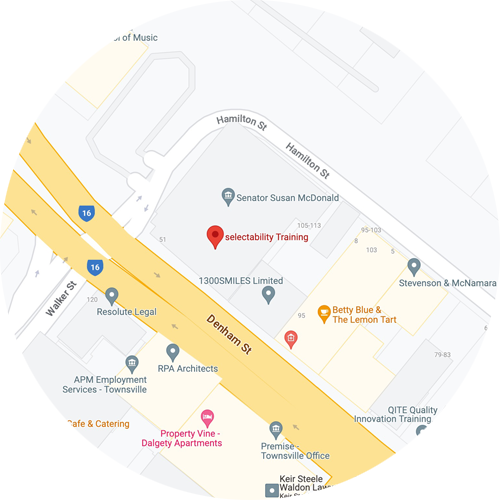- Students must be at least 18 years of age
- Complete the pre-entry Language, Literacy and Numeracy (LLN) indicator assessment
- To begin the course, you will need to hold a blue card. Before your vocational placement, you should confirm if you need NDIS worker screening portal clearance – this takes about three weeks to process. You can apply for both a blue card and worker screening (yellow card) at the same time which can increase your employment opportunities. Students may apply for a Blue and Yellow Card Exemption at the time of enrolment.
CHC52021 Diploma of Community Services
(Case Management)
Are you ready to take the next step in your community services career? This advanced qualification can help you achieve your personal and professional goals.
The Community Services sector is growing and offers a wide variety of roles in an area that delivers both job satisfaction as well as career security and progression.
Career opportunities include:
Community Care Manager
Coordinator of Volunteer Work
Team Leader
Care Team Leader
Family Services Coordinator
Support Facilitator (Community Services)
Duration
12 Months (Full Time)
18 Months (Part Time)Â
Delivery
Online (Supported self-paced)
Weekly Masterclasses & Lectures
Course Frequency
Rolling Enrolments - Start at any time!
Course Fees
Subsidised - $2,000 (Qld only)
Subsidised Concession - $1,500 (Qld only)
Full Fee - $6,200
Work Placement
100 hours
Course Requirements
Entry Requirements
Training commitments
Course duration: 12 months (full time), 18 months (part time).
Placement: 100 hours of work placement required
Delivery mode: Online, supported self-paced online
Access to learning
selectability Training provides all learning resources via its modern and easy-to-use Learning Management System.
To complete this course, we suggest that each potential student has basic computer skills such as sending an email, using a printer and scanner, using Microsoft Office programs, and internet skills to undertake online research.
Online study requirements
In order to successfully complete a self-paced course it is recommended you have access to the following:
- Stable internet connection with a minimum download speed of 3mbps.
- An email account – can be created through Yahoo, Hotmail and Gmail,
- Microsoft Office (2010 version or later) – must include Word, Excel and PowerPoint
- Current version of a web browser such as Google Chrome or Mozilla Firefox,
- Latest version of Adobe Reader,
- Desktop computer, laptop or tablet.
- Printer and scanner (optional)
Subsidies & payment options
Queensland Government subsidy
You will no longer be eligible for a government subsidised training place under the Higher Level Skills program once you complete one certificate IV level or higher qualification.
Higher Level Skills Funding
The Higher Level Skills program aims to assist eligible students to gain the qualifications they need to obtain secure employment, advance their career or transition to university studying priority industries. Employers in priority industries may also be able to use this program to up skill their workforce to address workforce skills gaps.
For this course the subsidy could bring your cost of study down from $6,200 to $2,000 or $1,500 (concession).
Eligible students may be able to access government assistance to complete a Certificate IV or above in an identified high-priority study area. The following requirement must be met to avail Higher Level Skills Funding for this qualification:
- Student must be an Existing Worker in the Community Services and Health industry, which includes parents and unpaid carers of NDIS participants
Higher Level Skills Funding eligibility requirements
- must be a Queensland resident;
- aged 15 years or over who is no longer at school (with the exception of VET in Schools students) and is an Australian or New Zealand citizen or Australian permanent resident (including humanitarian entrants), or a temporary resident with the necessary visa and work permits on the pathway to permanent residency;
- must not have a certificate IV or higher-level qualification, not including qualifications completed at school and foundations skills training;
- must not be enrolled in a certificate IV or higher-level qualification.
Ask your accountant whether you are eligible to claim your education expenses as a tax deduction.
How and when fees are charged
Subsidised training
The student co-contribution fee is charged upfront prior to enrolment, or by agreement we can offer a payment plan through our payment partner Debit Success. The co-contribution fee is divided by the number of units in the chosen course. Example:
16 units x $125.00 = $2,000 (the co-contribution fee)
All units in a course or program are commenced at the 'Start of Study' which is the commencement of the course.
Fee for service training
Fee for Service is applicable to students who aren't funded by the Queensland Government, and the full cost of the course is payable by the student. Students can pay for 2 units upfront, and then pay per unit as they progress.
The maximum amount we can charge prior to the Start of Study is $1,500. The full details and fees and charges for the service are provided on the Student Handbook, located in the Policies and Procedures section of our website.
Payment Plan
We can offer a payment plan depending on your funding circumstances.
Talk to our friendly team to select the right payment plan for your situation.
Upfront payment
Prior to the commencement of your course you may pay your fees as an upfront payment via EFT Transfer.
The maximum amount we can charge prior to the Start of Study is $1,500.
Career Pathways
Graduate job opportunities
If you are a community services worker or unpaid carer this course provides an opportunity to take your career to the next level.
- Community Care Manager
- Coordinator of Volunteer Work
- Team Leader
- Care Team Leader
- Family Services Coordinator
- Support Facilitator (Community Services)
- Community Housing Resources Worker
- Community Development Worker for Social Housing
- Community Recreation Coordinator
- Housing Manager
- Housing Assistant
- Assistant Community Worker
- Community Worker
- Aboriginal Housing Worker
- Community Services Coordinator
- Case Coordinator (Disability)
- Youth Housing Support Worker
- Family Support Worker
- Community Access Coordinator
- Pastoral Care Counsellor
- Aboriginal Neighbourhood House Coordinator
- Case Coordinator (Community Services)
- Welfare Support Worker
- Senior Youth Worker
- Disability Team Leader
- Support Facilitator (Disability)
- Community Housing Worker
- Community Work Coordinator
- Early Intervention Worker
- Community Program Coordinator
- Pastoral Care Worker
- Assistant Community Services Worker
Units of Competency
Core
CHCCCS007 Develop and implement service programs
CHCCOM003 Develop workplace communication strategies
CHCDEV002 Analyse impacts of sociological factors on clients in community work and services
CHCDIV003 Manage and promote diversity
CHCLEG003 Manage legal and ethical compliance
CHCMGT005 Facilitate workplace debriefing and support processes
CHCPRP003 Reflect on and improve on own professional practice
HLTWHS004 Manage work health and safety
Elective
Case Management specialisation:
CHCCCS004 - Assess co-existing needs
CHCCSM004 - Coordinate complex case requirements
CHCCSM005 - Develop, facilitate and review all aspects of case management
CHCCSM006 - Provide case management supervision
Other Electives:
CHCCCS019 - Recognise and respond to crisis situations
CHCDIV002 - Promote Aboriginal and/or Torres Strait Islanders cultural safety
CHCMHS013 - Implement Trauma informed care
CHCMHS012 - Provide support to develop wellness plans and advanced directives
OTHER AVAILABLE COURSES
CHC53315 Diploma of Mental Health

CHC53315 Diploma of Mental Health
Are you ready to take the next step in your community services or health career? This advanced qualification can help you achieve your personal and professional goals.Thi...
Read More
CHC43315 Certificate IV in Mental Health

CHC43315 Certificate IV in Mental Health
Are you working in or do you want to work in a mental health role to achieve better outcomes for your clients as well as greater job-satisfaction and career progression o...
Read More
CHC43515 Certificate IV in Mental Health Peer Work

CHC43515 Certificate IV in Mental Health Peer Work
Do you have lived experience in mental illness and want to use that experience to make a difference in other people's lives? This qualification is for existing workers i...
Read More
CHC32015 Certificate III in Community Services

CHC32015 Certificate III in Community Services
This course can kick start your career and make you more employable by teaching you how to help people in a range of care areas including support, education and welfare...
Read More
CHC40321 Certificate IV in Child, Youth and Family Intervention

CHC40321 -Certificate IV in Child, Youth and Family Intervention
Do you have a passion for helping people? Would you like the work you do to positively impact others' day-to-day lives? Undertaking a CHC33015 Certificate III in Individu...
Read More
CHC33021 Certificate III in Individual Support (Ageing & Disability)

CHC33021 Certificate III in Individual Support (Ageing & Disability)
Do you believe we all deserve dignity, care and support as we age? Make a difference by becoming a disability and/or aged care worker and help our vulnerable people stay ...
Read More

